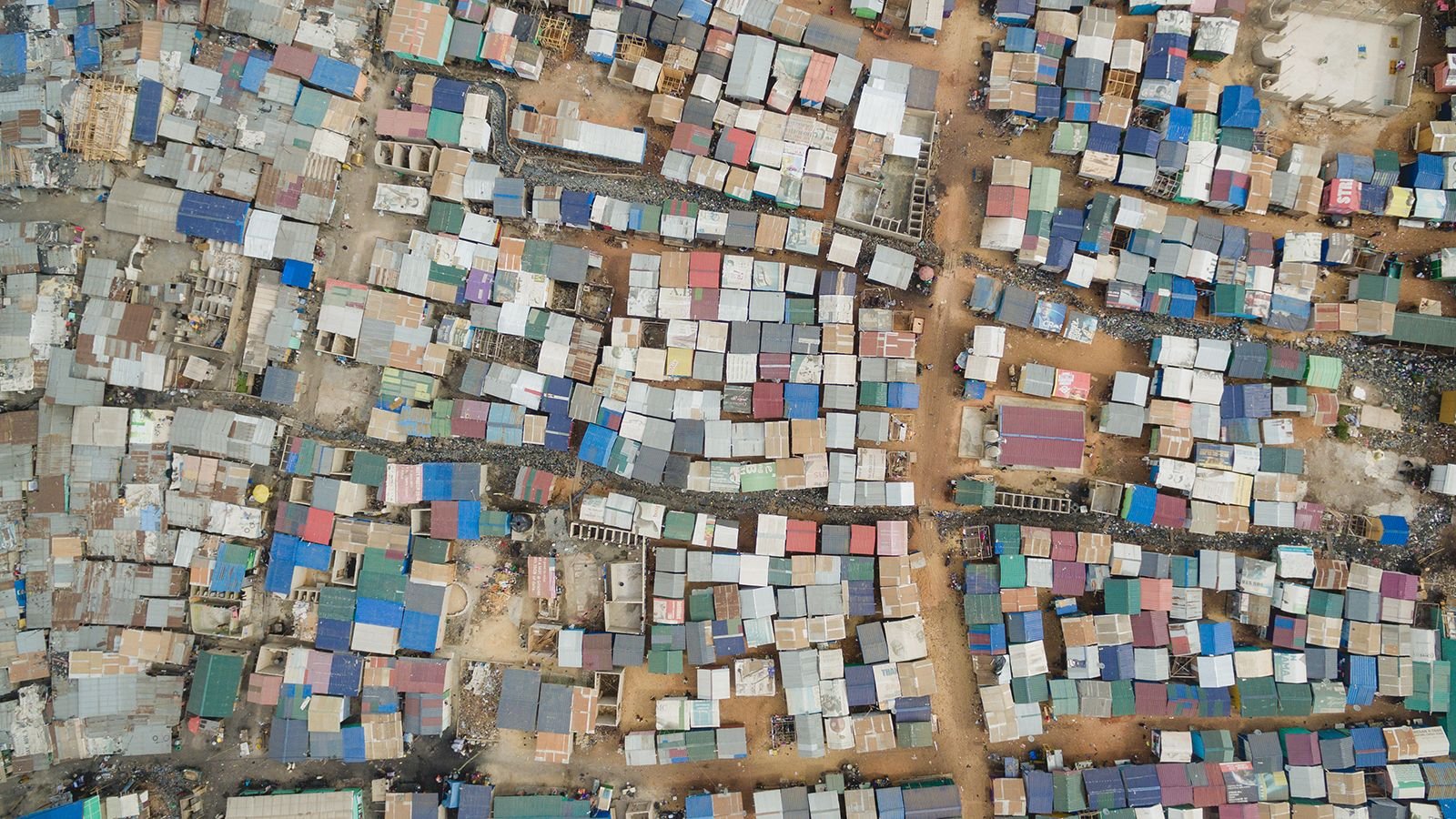“Africa is a unified force to tackle climate change”
Honourable Elizabeth Kwatsoe Tawiah Sackey is mayor of the Ghanaian capital Accra. In this interview, she talks about how the city creates better living conditions for migrants and what she expects from the UN Climate Change Conference in Egypt.
Mrs. Sackey, this year is probably going to be one of the hottest since the beginning of weather recording. Which climate change impacts do you experience in your city?
Elizabeth Kwatsoe Tawiah Sackey: In the past we have experienced devastating floods in the city of Accra, which has led to loss of lives and property. We are also starting to see our coastlines receding in many of our coastal communities. This particularly negatively impacts informal settlements in the city, where a sizeable number of local and international migrants reside. It exposes them for example to water-borne disease outbreaks and also reduces their abilities to withstand various economic and social shocks.
How does the city of Accra handle and adapt to these challenges?
We have a National Disaster Management Organisation within our administration. They are prepared to respond to such disasters and work to monitor disaster plans to keep us all informed if a disaster is forecast. They also bring relief to disaster victims and assist to reduce poverty in vulnerable and poor communities The city is also tackling these challenges through a project on the dredging of waterways, gutters as well as a campaign which aims at the behavioural aspect of waste management telling people not to dump garbage in drains.
In your city – like in many metropolises around the world – a part of the population lives in informal settlements. What are the main challenges in these neighbourhoods and how does the city administration address these?
Indeed, about 58% of settlements in the city are informal. This challenge has come about because of increasing rates of our city’s population growth, as well as due to migration with accompanying housing deficits.
Residents in informal settlements are faced with reduced access to some of the most basic social amenities like a regulated waste management system. Therefore, the city is working to improve its waste management system through a programme to start the separation of waste at source and put up a compost plant. Apart from that we strive to give them access to financial inclusion, through a recognised national identification system which will also enable them to be enrolled onto the National Health Insurance Scheme as well provide an infant care facility for the children.
The city of Accra receives funding through the Global Cities Fund for Migrants and Refugees’ chapter on Inclusive Climate Action in order to develop activities that help improve the lives of people migrating due to climate change. What is going to happen
I am incredibly proud of Accra being an inaugural grantee of the Global Cities Fund’s chapter on Inclusive Climate Action. With the Fund’s support, Accra will expand access to employment for at-risk migrants and marginalized Ghanaians to strengthen our economy's resilience to the impacts of climate change and improve working conditions in the informal waste sector. This will be done by formalizing aspects of waste collection, such as providing access to healthcare for migrants and providing childcare for babies, toddlers, and young children while their parents and caregivers work nearby.
“I will call on the global north to start looking at Africa as a unified force to help tackle climate change.”
You are part of the Mayors Migration Council and will participate in the COP27. What is your key message that you hope to deliver at this conference?
While funding from the Mayors Migration Council’s Global Cities Fund is helping to take action around climate migration in cities like Accra, local governments are still struggling to provide the services that migrants and informal workers need to lead meaningful and productive lives.
I am counting on meeting with fellow mayors at COP27 on the global stage so we can highlight the things that matter to us: building resilient and adaptable cities, bridging the gap on international funding and financing for city-led inclusion of migrants in the green transition, and showcasing the work we are already doing to assist migrants affected by climate change. I will call on the global north to start looking at Africa as a unified force to help tackle climate change. We will also call for collaborations and for deliberate efforts to bridge the divide through policy actions, access to funding and the sharing of best practices.
The Robert Bosch Stiftung supports the Mayors Migration Council to enable cities to help shape migration policy at the national, regional, and international levels. Mayors play a key role in migration policy, as they can improve local conditions for all city residents and thus contribute directly to global migration governance goals.
The Mayors Migration Council’s Global Cities Fund for Migrants and Refugees (GCF) responds to the unmet needs of cities as they support migrants, refugees, and internally displaced people. By directly funding cities, the GCF builds precedents of fiscal feasibility in city governments that are often disregarded by donors with low risk tolerance. The GCF has created a catalogue of investment-ready solutions for migrants and refugees with the potential to shift humanitarian and development responses to those best placed to deliver them: cities. The GCF has become a multi-million dollar fund with a pipeline of over 20 city grantees through the support of its donors, including the Robert Bosch Stiftung, the Open Society Foundations, and the IKEA Foundation.

